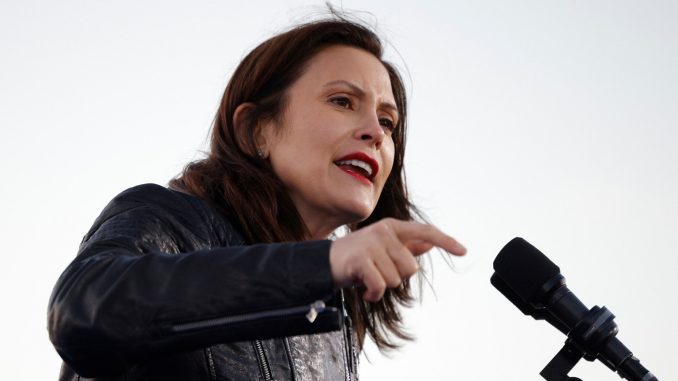
With a surging coronavirus outbreak across the U.S., state officials have instituted various restrictions and have warned that full lockdowns may be necessary if the outbreak does not ebb.
The possibility of stay-at-home orders comes less than two weeks before Thanksgiving, which is usually the day of the year with the largest volume of domestic travel. Some state and local governments are recommending that residents spend the holiday only with immediate family members, fearing a wider spread of the illness. Meanwhile, coronavirus hospitalizations have reached record levels in the Midwest, straining healthcare workers’ ability to deal with the outbreak.
New Jersey governor Phil Murphy signed an executive order on Monday limiting indoor gatherings, including those held at private homes, to just ten people, following the lead of New York governor Andrew Cuomo, who implemented a similar mandate that took effect Friday and also requires all bars, restaurants, and gyms to close by 10 p.m.
In California, Governor Gavin Newsom announced on Monday that almost all counties would move to the “purple” tier, the state’s most restrictive coronavirus measures pending a full lockdown. The restrictions place limits on indoor dining and cap retail stores’ capacity at 25 percent.
Coronavirus spread in the state is “the fastest increase California has seen since the beginning of this pandemic,” Newsom said at a press conference.
Illinois Governor J.B. Pritzker, a Democrat, warned on Friday that a statewide stay-at-home order may be impossible to avoid.
“With many community leaders choosing not to listen to the doctors, we are left with not many tools left in our toolbox to fight this,” Pritzker said at a press conference. “If things don’t take a turn in the coming days, we will quickly reach the point when some form of a mandatory stay-at-home order is all that will be left.”
The state has a seven-day rolling average of 12,000 new cases, according to the New York Times. Chicago and Cook County governments have issued stay-at-home advisories, stopping short of a mandate while imploring residents to only leave home for essential visits to school or work.
North Dakota has been particularly hard-hit by the latest coronavirus wave, with a seven-day average of 1,300 new cases. The state’s population is just 762,000 people, meaning that with 63,800 infections among residents since the start of the pandemic, over 8 percent of all state residents have contracted coronavirus.
Republican Governor Doug Burgum issued an executive order on Friday ordering residents to wear masks in public and for restaurants and event halls to reduce capacity. Religious institutions are exempt from the order, but strongly encouraged to comply with CDC guidelines on mitigating coronavirus spread.
The state’s doctors and nurses “need our help, and they need it now,” Burgum said in a press release. The governor has allowed medical staff who test positive for coronavirus but remain asymptomatic to return to work because of hospital staffing shortages, in a move widely criticized by medical professionals in the state.
Wisconsin Governor Tony Evers, a Democrat, has also implored residents of his state to remain home when possible, without mandating a full lockdown. Almost 6 percent of residents have contracted coronavirus since the pandemic began, with a current seven-day new case average of 6,850.
“Please, cancel the happy hours, dinner parties, sleepovers, and playdates at your home,” Evers said in an address to residents. “Unfortunately, with the holidays just around the corner, we recommend that you plan to celebrate just with your own household.”
Michigan has instituted new restrictions on indoor gatherings, where coronavirus spreads most easily, including a three-week ban on indoor dining. Democratic Governor Gretchen Whitmer has been criticized by President Trump and allies over far-reaching coronavirus restrictions in March and April, and on Monday Trump adviser Dr. Scott Atlas encouraged residents to “rise up” against the restrictions in a Twitter post.
“It’s just incredibly reckless, considering everything that has happened,” Whitmer told reporters on Monday regarding Atlas’s comments.
Dr. Vivek Murthy, a top coronavirus adviser to President-elect Joe Biden, said on Sunday that a national lockdown of businesses and schools is a “measure of last resort” and that any lockdown that would occur now would look different than those of the spring. Those comments came days after Dr. Michael Osterholm, another Biden coronavirus adviser, advocated a four to six week national lockdown accompanied by government checks to cover lost wages.
While coronavirus has surged throughout the U.S., pharmaceutical giants Moderna and Pfizer have both announced that their vaccine candidates are 90 percent effective or more, and could receive emergency authorization from the Food and Drug Administration by the end of 2020. It will likely take several months to distribute the first vaccines to be produced, with medical workers and vulnerable populations the first to receive the vaccines.
